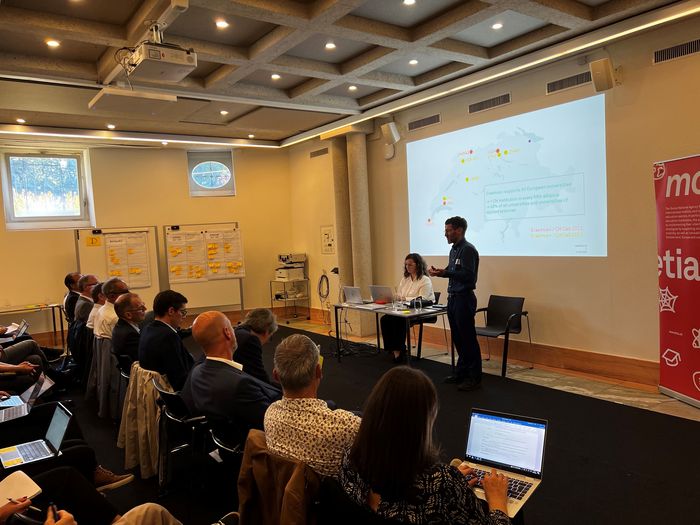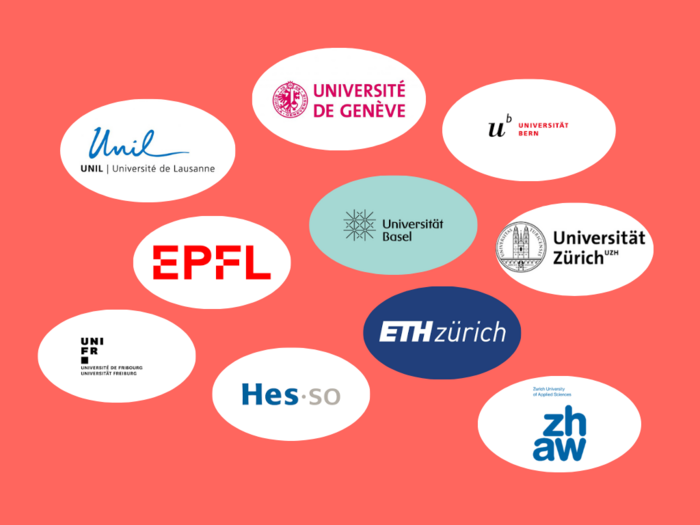Reputation of Swiss Higher Education Institutions: European cooperation plays a decisive role
The Vice-Rectors present agreed that the "European Universities" initiative is of strategic importance for the Swiss higher education area. The initiative is a flagship initiative of the European Union with the aim of significantly deepening transnational institutional cooperation in teaching, research, innovation and services within the European Higher Education Area (EHEA). In order to achieve this, excellence projects by university consortia with members across Europe, known as "European Universities", are being funded. SERI also continues to prioritise Swiss participation in the initiative. Several representatives of the universities emphasised that the alliances and their projects gave them an unprecedented opportunity to become involved in the policies of the European Higher Education Area and to help shape them while taking Swiss interests into account. For example, several Swiss universities are currently involved with their alliances in defining new European standards for joint degrees and for new legal forms of transnational university alliances. In addition, the "European universities" are a key prerequisite for maintaining the exceptionally good global reputation of Switzerland's own universities and the Swiss higher education system as a whole, including the quality of education.
In particular, vice-rectors underlined that it is important to provide adequate Swiss funding during the start-up phase of the "European Universities" and thus enable Swiss universities to participate. This was said to be crucial because the future of the Bologna Process will be defined in the current set-up phase. Currently developed products and activities should later be sustainably anchored in regular university operations and good practice examples should be made available to other universities. In future, funds can be competitively acquired for long-term cooperation within the alliances. Provided that Switzerland is given access to European education and research programmes.
Several people emphasised that the political prioritisation of the initiative should not be at the expense of mobility funding and that adequate funding must be available for Swiss calls.
A summary of the discussion (written by moderator Benedetto Lepori) is available in the right-hand column.
Context:
A total of 35 people were present at the meeting. Among them were representatives of the nine institutions that receive federal funding for their participation in a "European University" (overview of funded institutions) as well as two Swiss universities that are involved in alliances whose projects have not yet been successful at EU level. The rectorate representatives present were: Pierre Dillenbourg (Associate Vice-President for Education, EPFL), Andreas Vaterlaus (Vice-Rector for Curriculum Development, ETHZ), René Graf (Vice-Rector for Teaching, HES-SO), Bernard Ries (Vice-Rector for International Relations, Digitalisation and Interdisciplinarity, UNIFR), Stéphane Berthet (Vice-Rector, UNIGE & President of the International Relations Delegation, swissuniversities), Giorgio Zanetti (Vice-Rector Teaching, UNIL) and Dirk Wilhelm (Director ZHAW School of Engineering, ZHAW). The ETH Board was represented by Maryline Maillard (Head of EU and International Affairs). Michael Gerber, Ambassador and Head of International Programmes and Organisations, SERI, also took part in the exchange. The discussion was moderated by Prof Benedetto Lepori, Professor and Head of the Research Group Research Policy and Higher Education Research, Università della Svizzera Italiana (USI).

